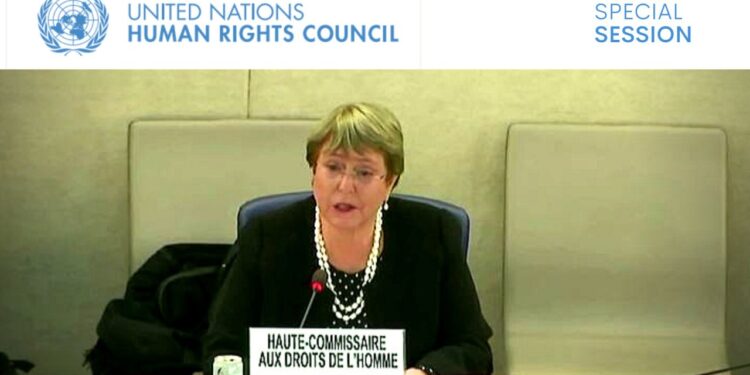By Janet Sankale
An expert to monitor the human rights situation in Sudan is expected to be appointed soon after the United Nations Human Rights Council passed a resolution on the troubled country.
The council asked the High Commissioner for Human Rights to designate such an expert “without delay”. The expert will be expected to oversee the developing human rights situation, while cooperating with the Office of the High Commissioner’s Country Office in Sudan.
Outlining the duties of the expert, the resolution, adopted without a vote as orally revised during a special session of the Human Rights Council (HRC) on November 5, 2021, said: “The council requests the High Commissioner, with the assistance of the designated expert, to present to the Human Rights Council at its fiftieth session a comprehensive written report, focusing on the human rights situation since, and human rights violations and abuses committed during, the period of the military takeover, followed by an enhanced interactive dialogue.”
HRC’s 50th regular session is expected to be held mid-2022.
The expert is expected to remain in office until the restoration of Sudan’s civilian-led government.
The council condemned the October 25, 2021 takeover by the Sudanese military, the suspension of transitional institutions, and the unilateral imposition of measures that are contrary to the Sudan Constitutional Declaration of 2019 and the terms of the Juba Peace Agreement of 2020.
It called for the immediate restoration of the civilian Transitional Government led by Prime Minister Abdallah Hamdok.
Speaking during the one-day special session, UN High Commissioner for Human Rights Michelle Bachelet said the military takeover was deeply disturbing and contravened international human rights laws, as well as Sudan’s own Constitutional Document and other foundational documents of the transition.
“The disproportionate and deadly use of force by the Sudan Armed Forces, the Rapid Support Forces, and other security forces – including military police and intelligence elements – must end immediately,” she said.
The commissioner stated that at least 13 civilians had been reported killed by military and security forces, and more than 300 injured.
She asked the council to “take appropriate action to ensure focused and expert monitoring of all aspects of the human rights situation in the country, through the establishment of an appropriate and independent mechanism”.
Victor Madrigal-Borloz, chairperson of the Coordination Committee of Special Procedures, told the council that Sudan’s military leaders had shown “utter contempt for democracy” and efforts to restore democratic governance and human rights in the country.
He urged HRC to assist in restoring the peace process, including measures to reinstate civilian rule.
Various speakers criticised the unconstitutional change of government in Sudan and the military coup, and called for the restoration of the elected members.
Some speakers said the council should appoint a special rapporteur to assess the situation and ensure accountability, while others raised the issue of the sovereignty of states and respect for countries’ internal affairs. They claimed that the council had been politicised, saying the calling of special sessions such as the one on Sudan did not demonstrate the impartiality the HRC should show.
A statement by the UN urged the council to establish a commission of inquiry to hold the Sudanese military to account for what it termed violations of international human rights law.
The 32nd special HRC session, the fourth in 2021, was convened following a request submitted jointly by the United Kingdom, the United States, Norway, and Germany.
Russia, China, and Venezuela disassociated themselves from the consensus on the resolution.







